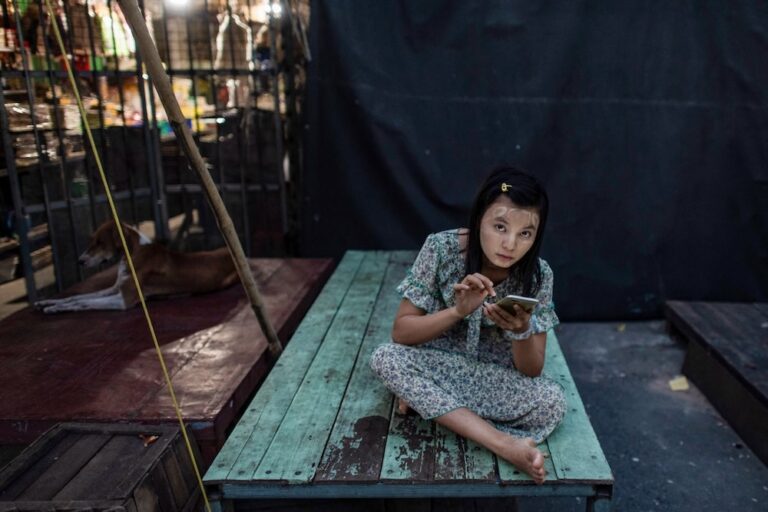The junta's electoral watchdog has refused permits for at least three political parties seeking to campaign on state-run radio and television, claiming the transcripts contained messages that could harm the state.
(Mizzima News/IFEX) – The Burmese junta’s electoral watchdog has refused permits for at least three political parties seeking to campaign on state-run radio and television, claiming the transcripts contained messages that could harm the state.
The Union Election Commission (UEC) has rejected transcripts of the Democratic Party (Myanmar), the Union of Myanmar Federation of National Politics and 88 Generation Student Youths (Union of Myanmar), to campaign on television, and told the parties the transcripts must be modified.
“The whole transcript of our party to canvass on TV was rejected. Myanmar Radio and Television (MRTV) informed us that our talks slandered the state. They told us that we could modify our transcript and after that campaign on radio, if the electoral commission approved it,” Democratic Party secretary Than Than Nu, a daughter of the first prime minister of Burma, U Nu, said.
Similarly, the UEC on 23 September 2010 informed the two other parties it had rejected their transcripts, saying they breached restrictions it had imposed. It failed to state which sections breached the restrictions.
“Our original transcript contains the message that we need a civil government elected by democratic principles. Before that perfect condition, our human rights will still be denied and democracy will not be established. I don’t think they liked that message,” Union of Myanmar Federation of National Politics chairman Aye Lwin told Mizzima.
“The political parties should have the right to present stances and policies to the public. But because of the tight restrictions, we can do nothing,” Aye Lwin added.
Similarly, the transcript of the 88 Generation Student Youths (Union of Myanmar) party was also rejected.
Union Democratic Party (UDP) chairman Thein Htay said his party had submitted its transcript to the UEC, but said if the commission told the party to modify or remove any part of it, the party would reconsider its plan to campaign on state media.
“The manuscript contains our party’s policies and stances. If it is censored, we will need to review our plan to campaign on [state] radio and TV. We are just waiting to see their response,” Thein Htay said.
The UEC was allowing 37 political parties to present their policy programs on state radio and television from 27 September until 7 October 2010. The presentations were recorded two days in advance of the scheduled broadcast, and the presentations will be transmitted twice.


